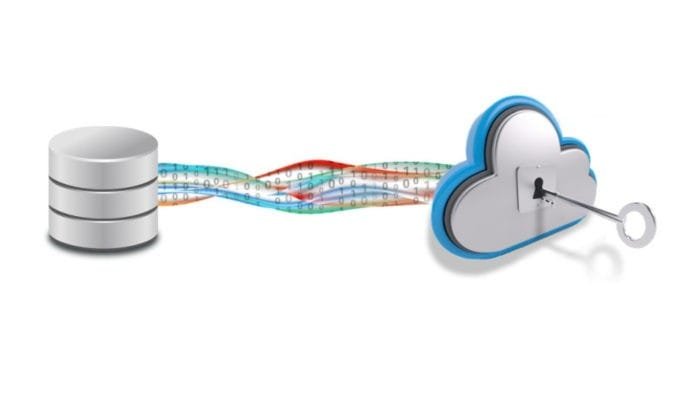A cloud database refers to a database service that is built on and accessible via a cloud-based platform. It performs almost all of the identical functions of traditional databases, which small to large companies use for businesses. However, these systems have the additional advantage of operating on the latest cloud technology in high demand today. Small companies who want to implement these databases have to first install the software application on the relevant cloud infrastructure to gain a competitive edge over their peers regarding database performance, safety, and success.
The process of moving towards a cloud environment may seem daunting at first, especially for small businesses with limited IT resources and expertise. Luckily, as explained by the folks from Dyrand Systems working with a team of IT professionals can help small businesses make this transition smoothly and efficiently. Plus, the benefits of moving towards cloud databases far outweigh any initial challenges.

The salient features of cloud databases that small companies can use for their businesses are as follows:
- These systems are built on and accessible through a cloud-based IT platform,
- Companies and other end-users can host the databases without having to buy the necessary hardware,
- End-users have the option of managing the databases themselves in-house or hiring a service provider,
- Compatible on both relational databases like MySQL and non-relational versions such as Apache Couch DB,
- Accessible via a web-based interface or an application programming interface (API), which the service provider offers.
Reasons to install and implement cloud-based databases
Experts from credible DBA support companies state that small business owners might want to install and operate cloud-based databases in their IT infrastructure for the following reasons:
- The end-users can access the databases from virtually any location using a web-based interface or a service provider’s API,
- These systems are versatile enough to increase their run-time storage capacities to meet their ever-changing growth needs, and
- Their business data is secure on remote off-site servers even during natural catastrophes, equipment malfunction, or power outages.
Deployment models
Corporate enterprises can choose any of the following deployment models at the time of installing a cloud database:
- Traditional
This is similar to any on-site business database they operate to conduct their commercial operations. Except for the infrastructure, companies have to acquire the necessary machine space from their service provider. These corporate enterprises even assign their employees to manage, oversee and operate the database.
- Database as a service (DBaaS)
In this deployment model, companies hire a reliable corporate vendor offering a pay-per-use subscription service. The system runs on this service provider’s infrastructure. The vendor is responsible for the database’s real-time performance, maintenance, and management on behalf of their clients. Moreover, it monitors and offers automation in back-ups, health monitoring, security patching, and scaling.
- Platform as a service (PaaS)
Cloud-based databases coming under this deployment model has fixed back-end configurations that companies have to accept. However, vendors running them do customize the software applications and hardware components at their clients’ request. Moreover, these service providers offer various configuration and database product options to suit the companies’ needs.
- Infrastructure-as-a-service (IaaS)
Under this deployment model, small companies can retain full control over the implementation and configuration of cloud-based databases infrastructure. Corporate enterprises are even responsible for many aspects of the system’s maintenance and management. These include data backups, installing the appropriate operating system, and version control. However, the companies do not incur the hardware costs they normally associate with on-premises infrastructure.
What to consider when selecting the right cloud database deployment model?
Specialists from the esteemed company in database management and administration, RemoteDBA, states that companies need to consider the following factors when choosing the right cloud database deployment model for their businesses:
- Constant data availability to the important software applications for ensuring no disruptions in operations,
- Ensure real-time performance optimization, including online auto-indexing by activating the necessary modules,
- Independent scaling of computation, storage, up-gradation, and security patching using the latest artificial intelligence technologies
- Modules for activating scale-out clustering of read-only and write sections to ensure the smooth running of important real-time workloads,
- Real-time data encryption and automatic security updates when the cloud database in operation or at rest, and
- User-accessibility features enforcing segregating of employees’ duties to ensure those working in operations cannot access customer details.
Migration challenges companies need to overcome
The common challenges small companies face when migrating from on-premises to cloud-based database infrastructure are:
- Ensuring an adequate bandwidth to move business data from the on-premise to cloud database infrastructure without disrupting commercial operations,
- Protecting customers’ credit information, intellectual property rights, business intelligence from cyber-threats like DDoS attacks,
- Ensuring the working of the cloud-hosting database infrastructure correctly complies with the stringent General Data Protection Regulation guidelines,
- Making sure the cloud database performance corresponds to the storage capacity their corporate vendors provide,
- Determining the right balance between performance and cost at the time of cloning the cloud database, and
- Have adequate data availability and application uptime to ensure the smooth running of critical business operations.
Key factors for ensuring a smooth transition to the cloud database system
Companies should ensure the cloud database deployment model they choose helps to overcome the above migration challenges. In doing so, they should take into account the following factors:
- The data types the corporate enterprise is willing to use on their cloud databases systems,
- The database versions they probably will be upgrading as their business operations expand,
- Compatibility of the operating system hosting the cloud database,
- Ensure the target the database software application is compatible enough to integrate into their on-premises infrastructure,
- Making sure the targeted cloud database configuration meets all of their scalability requirements,
- Whether or not their service provider makes a provision for operating adjacent scripts on the cloud database servers, and
- Ensure a minimum downtime necessary to make the smooth transition to a cloud-based database system possible
Benefits
The advantages of installing and operating cloud databases for small companies are as follows:
- The setting up, testing, validation, and running of the systems can be done within minutes,
- Pay-per-use cloud database deployment models are cheaper to operate than in-house versions,
- Cloud database service providers adopt the best security practices to reduce risks from cyber-threats, and
- The service level contracts the corporate enterprise’s signs insure them from revenue losses resulting in downtime.
Cloud databases offer companies greater flexibility in processing their workloads than traditional in-house versions. The corporate enterprises’ deployment model depends on their specific need and should be conducted by credible remote DBA support companies only. In this manner, small businesses can opt for a system that offers fewer challenges and a high control level. The database system is safe from cyber threats and scalable to meet small businesses ‘ growing needs with success!
Author’s Bio:
Walter Moore is a writer and notable management and digital marketing expert at RemoteDBA. He is an experienced digital marketer and has helped e-commerce businesses in all niches gain with his effective marketing strategies and guidance








